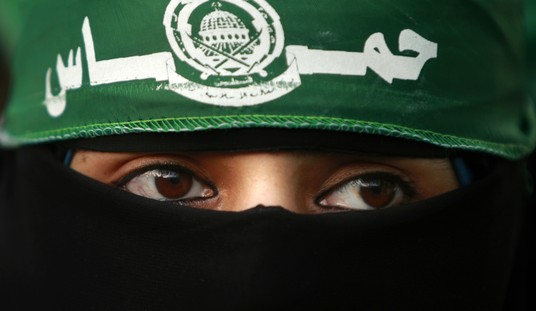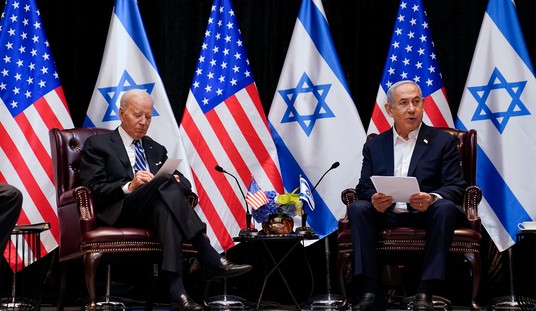Meet our very own Baghdad Bob — Brig. Gen. Thomas D. Weidley, chief of staff for Combined Joint Task Force Operation. General Weidley wants to convince us that Islamic State forces are “on the defensive” and that the situation is going just as they planned it — despite the fact that the enemy has just taken Ramadi, the capital of Anbar province.
The Islamic State on Friday took control of the provincial government center of Ramadi, the capital of Iraq’s largest province, and appeared to be in control of most of the city in a major defeat for the Iraqi government.
Islamic State forces also appeared to be closing in on government positions in two other key locations in Anbar province, the towns of Baghdadi and Karmah, in a broad offensive that if successful would end the government presence in any of the province’s major population centers. The capture of Baghdadi also would cut the supply lines to the Iraqi garrison protecting the strategic Haditha Dam.
At Ramadi, government troops were still fighting in some isolated areas. But the city was essentially under the control of the Islamic State after a fierce assault that began with a series of car bombs on Iraqi government security facilities overnight. By late afternoon, security forces appeared to be in full flight as militants consolidated control over the area and prevented anyone from leaving.
The Islamic State’s black flag was flying over the governor’s compound, witnesses said, and a Ramadi resident reported that an Islamic State victory statement was being read from the public address systems atop mosque minarets in the city, warning people not to try to leave. Cell phone service appeared to have been cut in much of the area.
Associated Press all but called out General Weidley for his propaganda campaign:
Weidley appeared to be pressing his own “information campaign” designed to counter the militants’ message of defiance. While conceding the militants’ were managing “episodic control” of certain terrain in Iraq, he insisted their advances were minor and unsustainable.
The State Department offered a similar assessment. “There will be good days and bad days in Iraq,” State Department spokesman Jeff Rathke said. “ISIL is trying to make today a bad day in Ramadi. We’ve said all along we see this as a long-term fight.”
Weidley said IS fighters had launched a complex attack Friday on Ramadi as part of an effort to “feed their information and propaganda apparatus.” He called Ramadi a “critical city” but said he could not confirm how much of the city had been lost to IS on Friday or what percentage remains in Iraqi control. He said his command had seen Islamic State social media postings of photos that depict a successful Ramadi offensive.
“This is similar to the (techniques) they’ve used in the past where they’ve conducted attacks trying to gain social media gains by taking photos and documenting small-term gains and then using it for propaganda purposes,” Weidley said, adding that IS was inflating the importance of its success.
“We’ve seen similar attacks in Ramadi over the last several months for which the ISF (Iraqi security forces) have been able to repel, and we see this one being similar to those,” he said, adding that the U.S. is confident the Iraqi government will be able to take back the terrain it has lost in Ramadi.
In fact, the Iraqi army fled in terror from Islamic State forces in Ramadi. And it appears from their attacks on Baghdadi and Karmah that there is strategic depth to this attack that Weidley isn’t acknowledging. In short, it doesn’t appear that this attack and seizure of Ramadi has much to do with a social media propaganda campaign at all; it appears to be a concerted effort on the part of IS to overrun key strategic points in Anbar province.
Nor is Islamic State “losing” in Syria. Since joining forces with al-Nusra, the al-Qaeda affiliate in Syria, they have pushed back Syrian government forces across the board. We should be used to the military sugar-coating the situation in Iraq by now, but this is a particularly egregious example of U.S. statements bearing little resemblance to the reality on the ground.









Join the conversation as a VIP Member